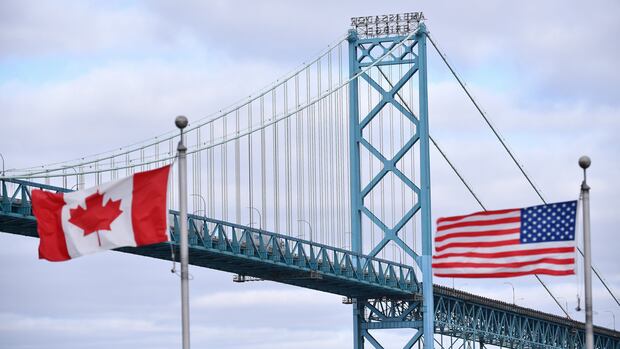The Canadian Boycott of U.S. Travel and Its Economic Impact
Introduction
In recent years, a notable trend has emerged: many Canadians are choosing to boycott travel to the United States, a decision that is beginning to have significant repercussions for the U.S. economy. The U.S. Travel Association has projected a staggering 3.2% decline in international tourism spending in 2025, equating to a loss of $5.7 billion compared to the previous year. The principal factor behind this downturn? A marked decrease in Canadian visitors, a trend that has persisted since the political climate shifted with Donald Trump’s return to office.
The Decline in Canadian Visitors
The data paints a stark picture. According to the latest statistics for October, return trips among Canadians traveling to the U.S. have plummeted: 24% for air travel and 30% for land travel, marking a significant contraction in connectivity that has continued for ten consecutive months. Traditionally, Canadians constitute the largest group of international tourists to the U.S., accounting for nearly 28% of the 72.4 million visitors in 2024.
Usha Haley, a professor of management at Wichita State University, cautions that this drop in tourism dollars poses a threat to thousands of jobs within the tourism sector, which is particularly labor-intensive and a significant employer in various states. The cascading effects of decreased hotel occupancy may impact labor demand, thereby affecting tax collections and municipal finances.
Political Context and Its Ramifications
The erosion in cross-border tourism correlates closely with the political climate, particularly since Trump’s administration has often characterized Canada in contentious terms. Trump’s trade war with Canada, coupled with his remarks about the country being the “51st state,” has fueled negative sentiment among Canadian travelers.
Even recent discussions regarding tariffs have only served to exacerbate the existing tensions. Following Ontario’s launch of an anti-tariff advertisement, Trump terminated trade talks and hinted at further tariffs, asserting that they are vital to remedying the trade deficit. Ironically, this stance has led to a travel trade deficit, as more Americans travel abroad than international tourists visit the U.S. For 2025, the projected deficit is nearly $70 billion.
Increasing Discomfort Among Canadians
The sentiment among Canadians is palpable. A recent Angus Reid poll revealed that 70% of Canadians surveyed in late October expressed discomfort with the idea of traveling to the U.S. this winter. The primary reasons cited include a strong desire to support Canada, concerns about the current political climate, and heightened security at the border resulting from Trump’s immigration policies.
Canadians like Rena Hans, a snowbird from Toronto, exemplify this mentality. Despite owning a condo in Florida, she refuses to travel to the U.S. until Trump is out of office, opting instead for destinations like Costa Rica, Turks and Caicos, and even planning trips to China and Taiwan.
The Burden of New Regulations
Travel regulations instituted by the Trump administration are also weighing heavily on potential visitors. A new rule, effective since April, mandates that certain foreigners—Canadians among them—must register with the U.S. government if staying longer than 29 days. This requirement, which includes fingerprinting and a $30 fee, has been described by travelers as unreasonable, particularly for senior citizens who invest considerable time and money in visiting Florida or other destinations.
U.S. Responses to the Decline
Recognizing the urgency of the situation, several U.S. states bordering Canada are launching initiatives to attract Canadian tourists. Cities like Buffalo, Seattle, and regions in Upstate New York are implementing promotional campaigns that offer discounts and incentives aimed at rekindling the tourism flow.
Notably, Discover Kalispell in Montana has introduced a Canadian Welcome Pass featuring deals from local businesses, such as hotels and restaurants. Year-over-year credit card spending by international visitors in Kalispell has plummeted by 39% between January and September, underscoring the economic necessity of drawing back Canadian tourists.
The Economic Ripple Effect
The repercussions of decreased Canadian tourism extend beyond just lost revenue. According to Bryce Baker, general manager of My Place Hotel in Kalispell, a 40% decline in Canadian guests has disrupted their business significantly. To combat this, the hotel is offering a 26% discount for Canadians as a way to show appreciation for those who still make the trip.
Conclusion
The ongoing boycott by Canadians towards the U.S. is rooted in a complex web of political and economic factors. While the U.S. looks ahead to potential rebounds in tourism spurred by events like the FIFA World Cup and the nation’s 250th anniversary, it remains uncertain whether Canadian travelers will be quick to return. As efforts are made to attract Canadians back down south, the interplay between sentiment, policy, and economics will be pivotal in determining the future trajectory of U.S. tourism.



